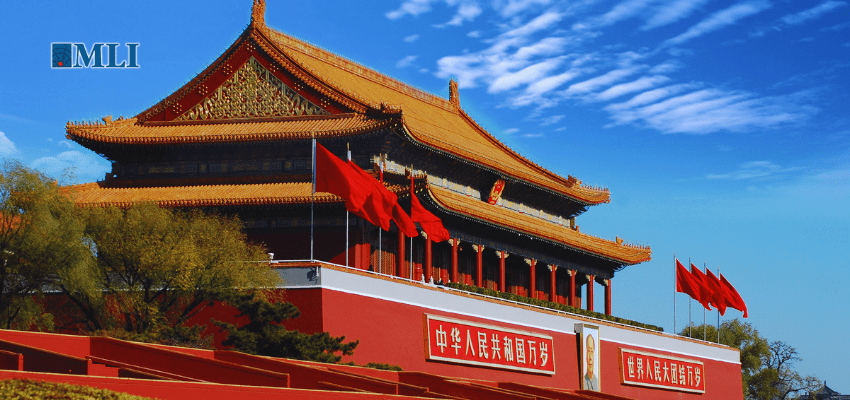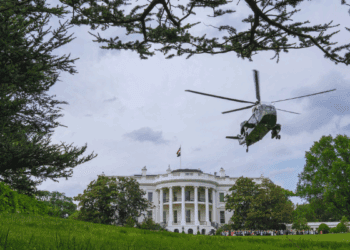This article originally appeared in The Hub.
By David Mulroney, April 23, 2025
Canada, like many other countries around the world, is struggling to respond to the economic chaos created by the Trump White House. But as serious as our made-in-America problem is, we can’t afford to take our eyes off the ongoing and even more serious threat posed by China.
It will likely be months before we can discern the full implications of our American crisis, something that requires navigating the bluffs, false starts, and sudden U-turns that characterise the president’s negotiating style. Things are still very fluid, and it would be seriously wrong to commit ourselves at this early stage to a radical decoupling from the United States, permanently turning our back on the enviable advantage conferred by our proximity to the world’s largest market.
For the moment, it’s sufficient to acknowledge that our situation, as serious, painful, and confusing as it is, represents a long overdue wake-up call to take far more responsibility for our prosperity, security, and autonomy in a dangerously unpredictable world.
Yet as much focus as there has been on the future of Canada’s relationship with the United States, we’ve risked neglecting the serious and ongoing challenges that we face with China. In fact, in the face of American hostility, there have even been voices in Canada who’ve argued that the solution lies in reaffirming our relationship with China. This would be a huge mistake.
Put bluntly, if we again leave things to the Liberals, we won’t open to the world, but to China.
I worry about this for three reasons. First, we have considerable direct experience of China’s contempt for our country, its citizens, and our democracy. No country has done more to undermine and corrupt our electoral system. None—with the possible exception of India—poses a greater threat to diaspora members living in Canada. And, as our canola growers, ranchers, and seafood exporters can attest, no other country relies as heavily on coercive trade practices to enforce economic and political compliance.
My second reason for worrying is that China is already alive to the opportunity that a Trump-induced crisis offers for re-capturing hearts and minds in the West. Beijing’s charm offensive already seems to be making headway with Britain, Spain, and the EU. They’ve also tried to extend the olive branch here in Canada.
So far, among our major allies, only Australia has resisted China’s siren song, politely but firmly declining the Middle Kingdom’s invitation to “join hands” to push back against U.S. tariffs. Instead, the Aussies appear to be pursuing a far more ambitious and truly global approach to trade diversification.
Which gets to my third reason for worrying. While it would make sense for Canada to pursue the same course that Australia is taking, it’s by no means a sure thing that we will. That’s because the Liberals, who are now consistently favoured to win a fourth mandate, have a China problem that they just can’t seem to shake.
The Liberals’ China problem
The problem is rooted in the party’s unfathomable naivete about the nature and intentions of China’s communist leaders, first initiated by Trudeau the father. It can be found in their addiction to diaspora politics that has corrupted our democracy. Ultimately, it has resulted in a party that is unwilling and unable to speak truthfully to Canadians about the China risk.
There’s reason to believe that Liberal leader Mark Carney has already succumbed to Beijing’s unhelpful influence. His welcome acknowledgement, made during the leaders’ debate, that China poses the largest security threat to Canada, is undercut by his unwillingness to act in ways that reflect this.
He appeared tongue-tied and nervous as he initially refused to expel a candidate for suggesting that supporters turn in his Conservative rival and Hong Kong human rights activist to collect a Chinese bounty. Then, instead of reassuring Canadians that he’s truly committed to addressing concerns about foreign political interference, he replaced him with a candidate linked to a pro-Beijing group tied to China’s main vehicle for meddling in democracies, the United Front Work Department. For their part, election monitoring officials have expressed concern that Beijing is working behind the scenes to boost Carney’s chances.
Carney’s understanding of China is largely restricted to the rarefied worlds of central banking, high finance, and climate policy, realms in which China does its very best to appear helpful and, to the extent possible, like a normal modern state. But this is largely an illusion. The Communist Party is anything but normal.
As charming as China’s climate mandarins can be, Beijing remains addicted to burning mountains of coal.
Elsewhere in the multilateral world, China’s growing influence is even more worrying. Rather than sustain the rules-based international order, it seeks to hollow out the parts of it—like the promotion of human rights—that it finds problematic. It’s also obsessed with covering up information—such as anything related to the origins of COVID-19—in areas where China’s negligence has led to global calamity.
While Beijing’s relentlessly hostile Canada policy is hard-wired in its communist ideology, Washington’s chaotic approach may have more to do with loose screws. One is a constant in world affairs, the other could be temporary. Although the threat emanating from the U.S. capital is serious and unsettling, our challenge will almost certainly come down to determining how much of the bilateral relationship can and should be salvaged.
But don’t expect Beijing to make an eventual rapprochement with Washington any easier.
There are no shortcuts on the road to national renewal. We must summon the resolve to become more self-reliant and no longer wholly dependent on a single, powerful patron, particularly one that, like China, so clearly seeks control rather than mutual benefit.






